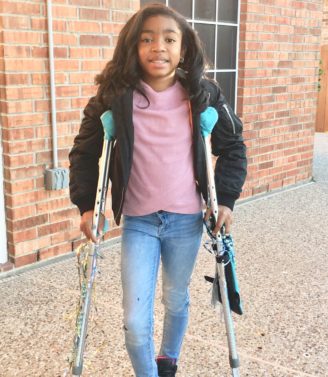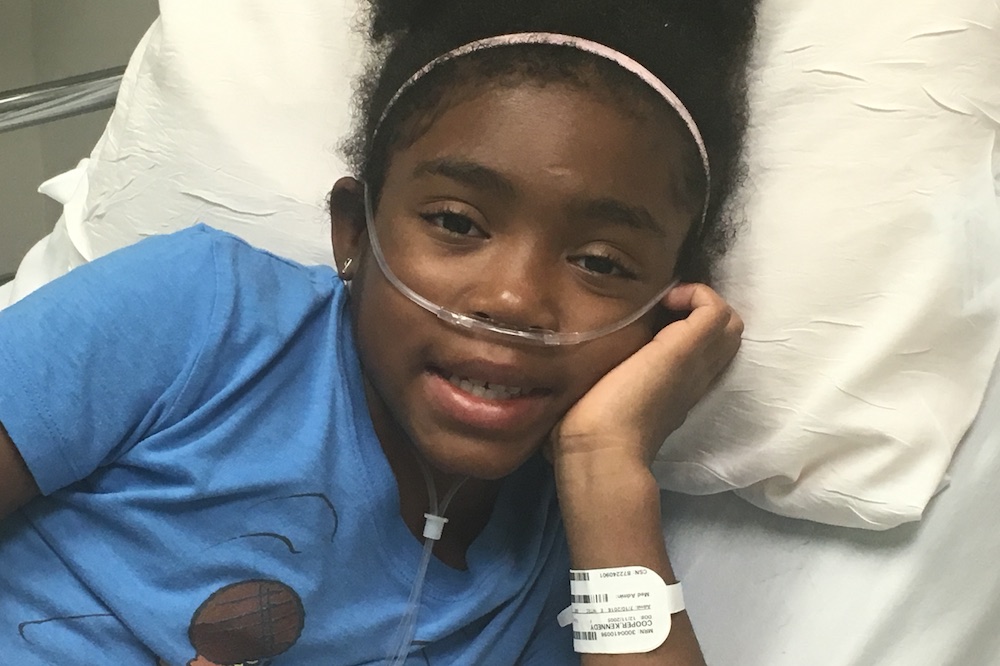[ad_1]
September is National Sickle Cell Awareness Month, and there’s no better time to share the story of Kennedy Cooper, a precocious girl with sickle cell disease. In her deeply personal blog for Texas Children’s Hospital, Cooper tells her story of pain and perseverance while educating the masses on the disease that affects so many.
“To put it simply, SCD is a group of inherited disorders where the red blood cells are sickle-shaped and broken down,” she says. “SCD can’t be developed, and it’s not contagious. These cells are inflexible and can easily cause clotting. This can bring pain and complications, like loss of oxygen. To note, sickle cell trait (SCT) is a less aggressive condition in which a child inherits the sickle cell gene mutation from a parent. Those with SCT usually don’t experience SCD symptoms throughout their lifetime. If two parents with SCT have a child, there’s a 50 percent chance their child will have SCT, 25 percent chance for SCD and 25 percent chance of normalcy. I was the first 25 percent chance, and I got SCD.”
Cooper went on to describe how the disease has affected several aspects of her life, including her social life.
“It’s not really fun to take medicine in front of friends at sleepovers. I’ve tried countless techniques to avoid this, including sneaking my medicine bag into the bathroom while others were distracted or waiting until everyone was sleeping (usually around 3 a.m.) to take my medicine. I’ve also had to turn down invitations to countless pool parties because the pool temperature was usually never warm enough for me. When I did go, I was almost always in the hot tub while everyone else played in the pool. When my family moved into a house with a pool of our own, my friends often complained about the water temperature and typically didn’t last more than five minutes in the hot tub. I’m able to shrug this off most of the time, but sometimes you just can’t help but notice how different you are from everybody else.”
There’s also the tremendous physical suffering associated with the disease, with Cooper sharing the story of how a quick dip in the pool resulted in severe arm pain for months.
“We later learned I had something called avascular necrosis (AVN) in my shoulder, which meant bone tissue death from loss of blood.”
Months later, her orthopedic physician diagnosed her with AVN in her hip as well.
“Dr. Scott Rosenfeld, my new doctor, suggested some different treatment options, but we ended up doing a core decompression surgery. I got my crutches a week before the surgery, and I’ve had them ever since. I would be on crutches until my hip significantly regained bone, which I originally thought might take three or four months. Little did I know it would take much, much longer.

“Now I’m back to school, in seventh grade—still on crutches. People asked me why I was still on crutches, and again, I didn’t really have a good answer. I go to the doctor time and time again, and I keep hearing I’m not ready to walk. Not yet, maybe in a few months. I’m still not ready to walk. Well, I’m ready, but my hip isn’t.”
Regardless, the junior high student remains in high spirits and continues to face her challenges with confidence and strength.
“As a wise person once said: ‘Everyone wants happiness, nobody wants pain, but you can’t have a rainbow without a little rain.’ So when my hip is ready, I’ll be ready. Until then, I guess I’ll just have to be great at everything else.”
If you’re interested in supporting your local SCD community, consider buying a T-shirt from Supporting Our Sicklers (S.O.S.) Parent & Guardian Group. Funds raised will go toward educational programs and assistance initiatives for families in the Greater Houston area. To purchase, click here.
[ad_2]
Source link

